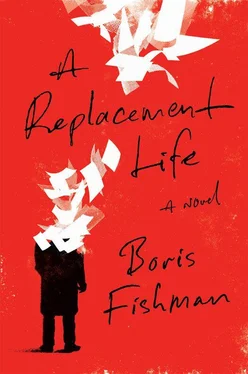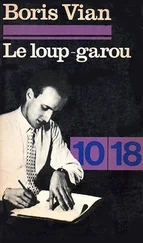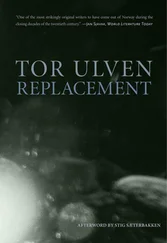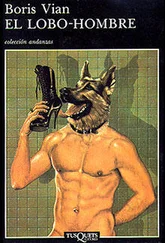Otto stared, stone-faced.
“I refused all these people because the law, like you said, is the law,” Slava said. “But if you want to know the truth, I wish I hadn’t. Your law is a puddle of rain next to what they went through. Because of your country. Because of you, Otto — because you are all that is left of them . I didn’t, in the end. Still, I couldn’t say no to my grandfather. Family. I hope you can make sense of that.”
Otto leaned against his desk and regarded Slava with an amused, admiring expression. They listened to the noise from the street a dozen stories below. The coffee gleamed blackly from its porcelain cup, an oily penumbra gathering on the surface. Finally, Otto exhaled a long column of air. “I can make sense of it very well, Mr. Gelman,” he said. “It doesn’t change what I have to do. Your grandfather’s application will be denied.”
Slava nodded.
Otto crossed his arms. A strange expression, disdain coupled with merriment, played in his eyes. “Thank you for your honesty,” he said.
“It didn’t come simply,” Slava said.
Otto smiled mournfully. “I have learned a lot from you, Mr. Gelman. You are free.”
At his dining room table, returned to its habitually abridged position, the wings retracted and folded, Grandfather was counting pills: powder-blue ramipril, white meclizine, pink clopidogrel. Each set corresponded to an envelope stuffed with prescriptions. Grandfather slid several pills from one pile to another, noted it on a torn piece of paper, licked his finger.
Slava had come directly from Otto’s office. It was easier to be here, in front of Grandfather, than far away. A brief rain had fallen, then settled into a cool evening, the air carrying the impending decay of leaves. In the kitchen, Berta was slicing and dicing, preserving and pickling for the long winter ahead.
“What is all this?” Slava asked Grandfather.
Grandfather finished writing down a figure. “You have to know how to make money,” he said without looking up.
“How?” Slava said. If you taunted him — if you said, No, it’s impossible, no one could do this — you could get out of him any answer you wanted.
“How,” he snorted. Then, in his forshpeis English, he said, “I no steal, okay?”
“So you knew English the whole time,” Slava said. “You could have written your own letter.”
Grandfather picked up a box of prostate tea and began to demonstrate his English. “No shoogar. No gloo-ten.” He squinted. “No pre-zer-va-tiv. What is that?”
“No chemicals.”
“Hm.” He put the box down skeptically.
Berta appeared in the doorway of the kitchen, one plate heaped with fruit, the other with pastries. “Time for snacks, young men,” she said. “Fortify yourselves.”
“You are an angel, Bertochka,” Grandfather said. To Slava: “She’s an angel.”
“Food is the way to a man’s heart,” Berta affirmed, laughing.
“We did notice, Slavchik, you’ve been coming around more often.” Grandfather winked, and he and Berta laughed. Slava joined in, reaching for a triangle of pastry.
“Excuse the interruption, men, I’m back to the kitchen,” she said.
“Somebody had a date with Vera Rudinsky,” Grandfather said matter-of-factly. He winked again.
Slava laughed because there was nothing else to do.
“Nice place?” Grandfather said.
If Slava said yes, Grandfather would be envious. If he said no, Grandfather would put her down. Slava said nothing.
“So, how was it?” Grandfather winked.
“None of your business,” Slava said kindly. “Nothing happened.”
“You went to her apartment and nothing happened?”
“Yes. Nothing happened. We talked and I left.”
Grandfather’s face fell. “Slavik,” he whispered, gold teeth glittering through his scowl. “Tell me that’s not true.”
“It’s true,” Slava said.
Grandfather’s face turned dark. “Slava, for God’s sake. You went to a girl’s house and nothing happened?”
Slava said nothing, only waited. Let it come.
“I won’t believe it,” Grandfather said. “Tell me the truth. You—” He smacked his fist into his palm. “You did, right? Like a man?”
Slava watched the pain in his grandfather’s face for a long moment. “I did,” he lied. “Like a man.”
“Attaboy!” Grandfather shouted. He yelled out to Berta in the kitchen, “Watch out for this one, girls! He’s no kind of homo!” He turned to look at Slava in triumph, but Slava couldn’t bear to look at him and looked away coldly. Grandfather’s triumphant expression faded into remorse. He would never understand his grandson. With a thick finger, he began pushing around invisible crumbs on the oilcloth.
Finally, Slava rose, the feet of the chair making a loud noise on the parquet. Grandfather looked like a boy regretful for having made another mistake. He had seen Slava three times in a month, three times more than in the year before, and now his mouth would send Slava away once more. Send him away for reasons he would never grasp, but send him away all the same, that much he understood.
But it wouldn’t. Slava walked over to Grandfather’s side of the table and laid his arm around the old man’s head. Grandfather reached up and squeezed Slava’s hand. “Love you,” Grandfather burbled in English through the tears in his throat.
Love you. I no steal.
The Bratislavan in Arianna’s foyer was relieved to see Slava so early in the evening this time. He beamed, a crooked molar showing. “Nice!” he roared, pointing outside. “Cool down!” Slava pushed out a smile and hauled himself up the stairs. Someone was baking: The staircase was thick with butter and sugar and heat. Again he stood mincing in front of her door. Again he listened for noise on the other side like an intruder. Did he come here only for absolution? That wasn’t what he wanted. He wanted to tell the truth, if only to one person.
He could hear music rising electronically from her laptop, her voice joining occasionally. Now and again, she addressed the cat. At last, he knocked. She opened the door and lowered and raised her eyes quickly — she did this when she was nervous. Often she didn’t announce what she was feeling, so he had to decode on his own. He got it wrong many times, but many times right, not meaningless considering they had known each other so briefly. Six weeks before, she was a voluptuous shadow on the other side of the wall.
“It’s from here,” he said, sniffing.
“I bake when I’m anxious,” she said. “Come in?”
He stepped inside and embraced her. He tasted all the ingredients on her tongue: lemon cake. Again her eyes fell and rose. When this happened, her face acquired an unkind crease around the lips, as if she resented him for having to become uncomfortable: If he understood what she wanted to know, he should just tell her.
“I didn’t,” he said.
She drew back. “What do you mean?”
“Or I did, but not exactly.” He worked the dome of his head into the crook of her arm. She pushed him away and lifted his face to hers. She called out his name. It was a question.
The cat offered its diversionary services, parking the front paws on the side of Slava’s right knee and staring up expectantly, what for only the cat knew. Slava forfeited the out and motioned to the couch. There, he told her what he had said to Otto Barber.
He had expected her sympathy, but none appeared on her face. “That wasn’t what we talked about,” she said coldly.
He rubbed his eyes.
“Slava, you promised. You swore. You said it yourself. We agreed.”
“It had nothing to do with you,” he objected.
“But then you forced me into it. You could have left me out of it, but you came here, you pulled me into it. Did you know? Did you already know what you were going to do when you promised me?”
Читать дальше











